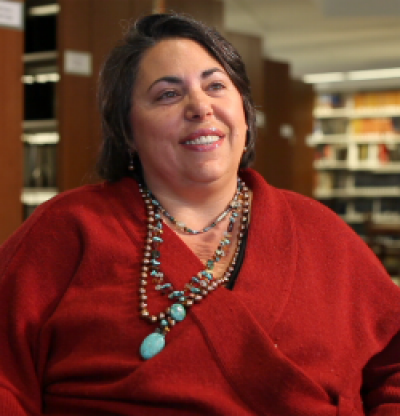RECOGNIZING FACULTY: MICHELLE PISTONE, PROFESSOR OF LAW, VILLANOVA UNIVERSITY CHARLES WIDGER SCHOOL OF LAW AND THE VILLANOVA
Michelle Pistone, professor of law, Villanova University Charles Widger School of Law and the Villanova Interdisciplinary Immigration Studies Training for Advocates (VIISTA), discusses the impact of immigration advocacy education.
Can you tell us about VIISTA?
VIISTA stands for Villanova Interdisciplinary Immigration Studies Training for Advocates. It’s the first university-based certificate program specifically designed to train students to become immigrant advocates and accredited representatives – non-lawyers authorized to provide low-cost legal representation to migrant and refugee families. In this sense, VIISTA is a pioneer.
The program is comprised of three modules that build upon each other, but each one has a different focus. Students receive a Module Certificate from the College of Professional Studies upon completion of each module and a Program Certificate upon completion of all three.
What makes this program so exciting to you?
So many things. It’s the first program of its kind and it revolutionizes legal education. Our educational model is learner-centered, holistic, interdisciplinary, and it teaches the necessary competencies to be an immigrant advocate. VIISTA educates a new category of legal advocates – akin to nurse practitioners in health care. However, what excites me the most is the impact we can have by being at the forefront of immigrant advocacy in our current cultural moment. Access to legal representation is the primary determinant in getting a just immigration outcome, but there is such a large gap between the demand for legal representation and the supply of representatives. VIISTA can close this gap and that fills me with excitement and passion.
Who might be interested in this program?
Anyone who wants to help immigrants, take action, make a meaningful impact, better understand the immigration system, and join a community of like-minded champions for immigrant justice. So many people want to do something to help migrants and refugees, but they don’t have the knowledge or skills to do what it needed. VIISTA responds to that void. Potential students include recent college graduates, people returning to the workforce after caring for children, and retirees. Social workers, health care workers, educators, policy advocates, pastoral workers, pro bono lawyers, prospective law school students, paralegals, people seeking an encore career... truly anyone who is passionate about immigration can benefit from a VIISTA education.
How did this project come about? How long has it been in the works?
About five years ago, I noticed a great interest to help immigrants and a big gap in legal services that could help migrants. This, coupled with my interest in legal technology and education, led me to create VIISTA. For the past 2 years, I’ve been working with an interdisciplinary team of renowned faculty in the field, lawyers, and NGOs to create a holistic, online curriculum that bridges migrant needs with students who are eager to act by teaching the competencies needed to advocate effectively.
To start, we consulted with various community stakeholders – including non-governmental organizations, university professors, potential employers, migrants, refugees and potential students – to determine the competencies that our graduates needed to possess upon graduation. We translated the competencies into a discrete list of learning outcomes – what we want the students to know, be able to do, and appreciate/value upon completion of the program. Recognizing that migration is an interdisciplinary topic, and that in order to understand migration and to best work with migrants, one needs to approach the work from an interdisciplinary perspective. So, we assembled interdisciplinary teams of faculty members to design and develop the instructional learning activities. The team members worked collaboratively, ensuring that the learning activities and assessments aligned with the learning objectives and competencies.
What’s something you’d like people to understand better regarding the current immigration system?
You don’t have to go to law school, pass the bar and become a lawyer to provide legal services to immigrants! Accredited representatives are authorized under US law to provide legal services to immigrants in immigration court and before the Department of Homeland Security. This is such an under-utilized alternative to becoming a lawyer if you are interested in immigration law. I hope that by providing a program that specifically teaches passionate students the competencies to pursue this program, more and more accredited representatives can start giving low-cost legal representation to migrants who need it the most.
Who should people contact for more information?
Anyone who’s interested can contact me directly at pistone@law.villanova.edu or go to immigrantadvocate.villanova.edu to request information on the program and apply to start in Fall of 2020!

